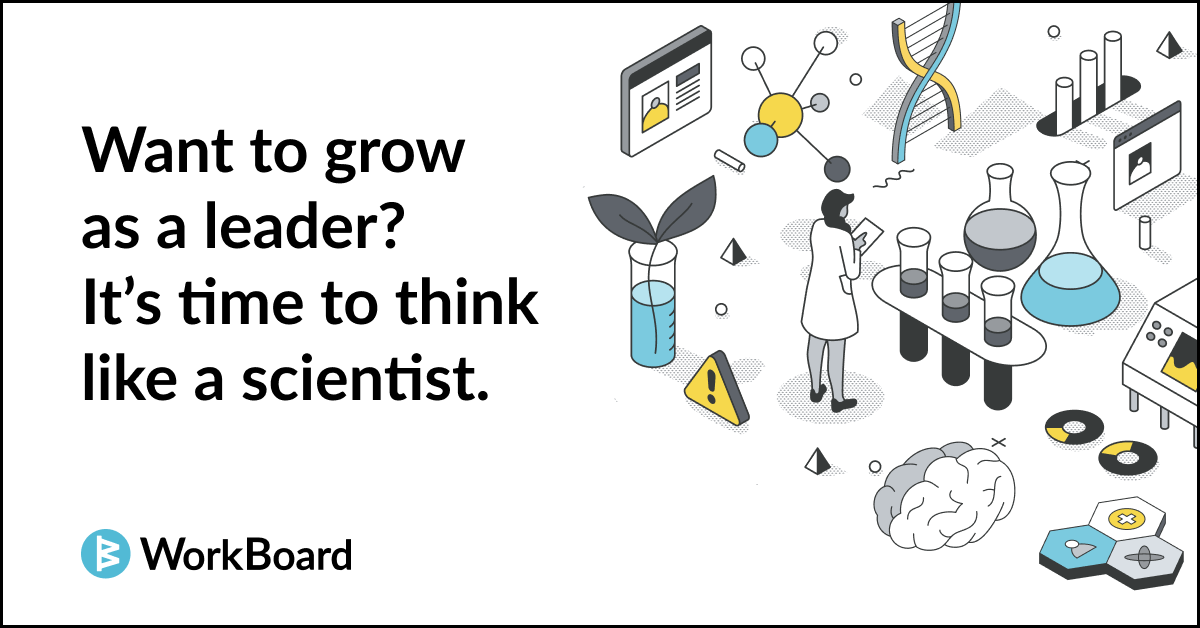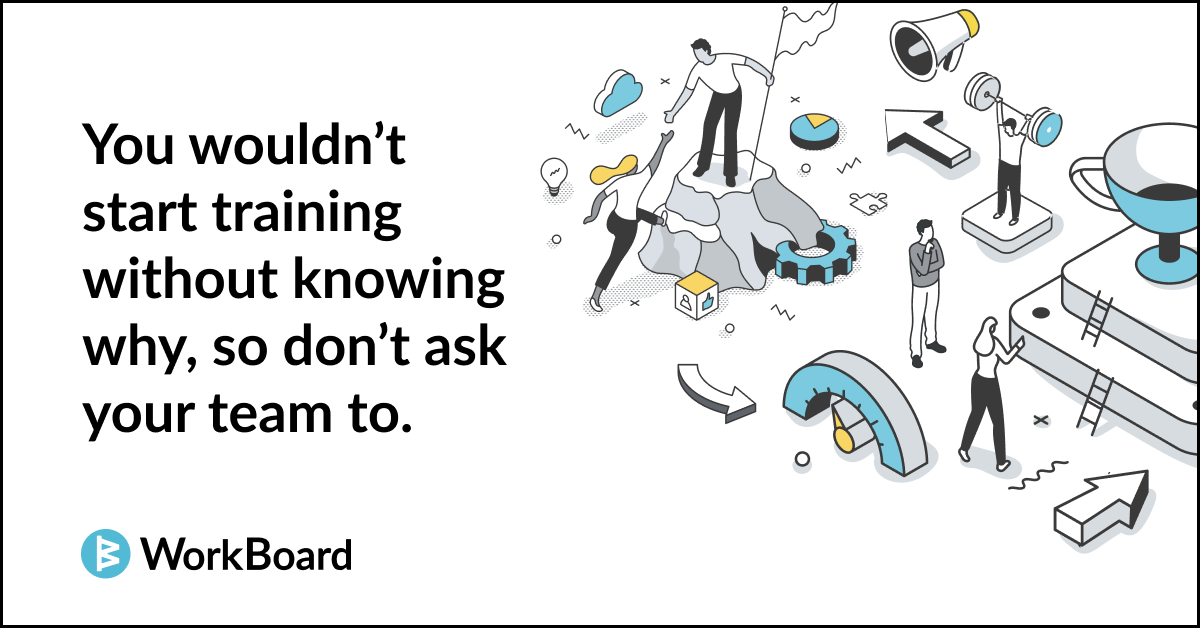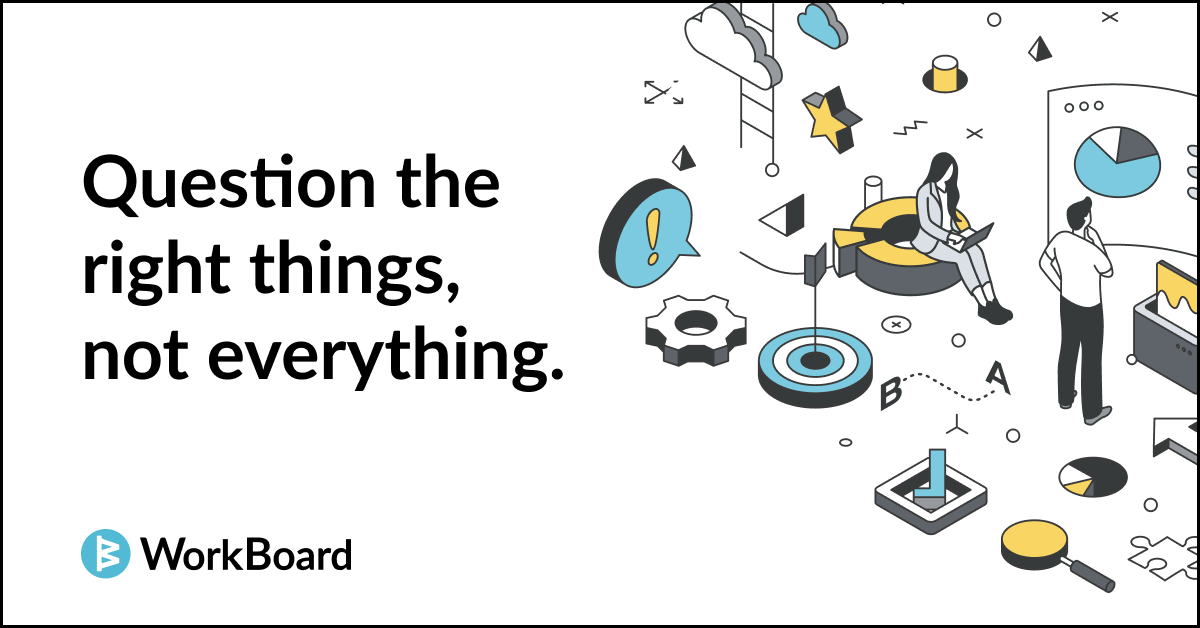As a leader and manager of a team, I am a big believer in the value of measuring daily and weekly actions. In my experience, the only way you achieve anything is by setting a goal and managing to it daily. And it is the only way you can truly make a team be more than the sum of its parts.
This means being maniacal about what is measured and making sure that it actually adds up to the goal. An example I use every day is in the BDR team. The team’s daily calls and emails must add up to meetings booked, opportunities created, and pipeline created. We focus every day on the calls and emails completed because if they don’t happen the pipeline doesn’t get built. It is as simple as that.
It drives real predictability but relies on real accountability. It relies on every team member, including you as the manager, owning your results — including the zeros.
Owning the Zero: If your progress on a result is zero - own it; don’t ignore it or skip an update.
When you are focused on the daily measures, and using them as a leading indicator to the outcome being achieved, the worst update is no update. No update means you don’t know how you’re doing. It means other teams that rely on your results or progress are in the dark and blocked. And it often means that you are either punting, or making something up in important team and cross-functional meetings. Neither of which is good for the company, you, or your team.
Obviously, the best update is an on-time and on-target one. But if no progress has been made, a zero — and an on-time zero — is immeasurably more helpful than no update. It means everyone is still on the same page. It means there can be a conversation about what is blocked or why it was a zero. But most importantly, it means progress and forward momentum.
Owning and being accountable for the update is particularly important for your cross-functional teammates. For example, it is rare that a product leader knows every piece of work being done in marketing, or what every person on the marketing team does, and vice versa. And they shouldn’t. They should instead know that they can depend on your updates, every week, to inform and manage their team’s goals.
This can be a real challenge for new managers. Owning a zero, or even an off target update, feels like an admission of failure. It feels like no update is better. It feels like no one will notice. But that isn’t true.
AI agents are just starting to play a couple of roles in companies and teams. First, they are transforming your day-to-day work and impact as a manager by making you more skillful in difficult conversations, uncovering dependencies, and giving you additional capacity — like with WorkBoard AI. Secondly, as team members — like with Workday, Salesforce, and 11x — giving you extra resources that if deployed and managed correctly can help you achieve bigger goals — just like human team members.
One thing is for sure, being a manager is about to become even more complex, and even more important. With accountability being the true measure of your success.
So, AI agents as team members…
As we start to design our teams with AI teammates as well as human ones, your job will still largely be allocating resources to your goals, and connecting those goals back to the company strategy. But since these AI agents will give you extra management and team capacity, your team size and your responsibility will increase. You will go from managing teams of 7 or 10 to managing a much bigger team, number, or outcome. You'll effectively be managing a team of 20, or the outcomes a team of 20 can drive, but with a mix of AI and human team members. Your AI team members will support other AI team members and your human team members. They will also own their own results.
You will also still need to manage cross-functionally and provide the business with progress to plan every week, including how that progress, or lack thereof, is helping or hindering your peers. How the work gets done will change significantly; aligning it to the strategy will not - at least not for a while.
Just as you will be figuring out how to properly deploy AI agents in your team, other managers will be figuring it out in their teams. This is a whole new world. The result is that everyone will have even less of an understanding of how you, and your team (made up of AI and humans), is getting work done. How work is done will become even more opaque. Meaning the tie-offs, the translation of your team’s impact, and the weekly progress updates are even more important. It is the only way your leadership team — and the rest of the management team — will understand what needs addressing week to week. It won’t be as easy for your inquisitive boss, CEO, or Business Unit leader to have a skip level 1:1 with your brand new AI agents! Instead, their measure of alignment, success, and impact is truly what you share - and therefore solely your responsibility.
So AI agents are just starting to give you extra resources that, if deployed and managed correctly, can help you achieve bigger goals. One thing is for sure, being a manager is about to become even more complex, and even more important — with accountability being the true measure of your success. It is about to take on a whole new level of importance.
Originally posted on LinkedIn







